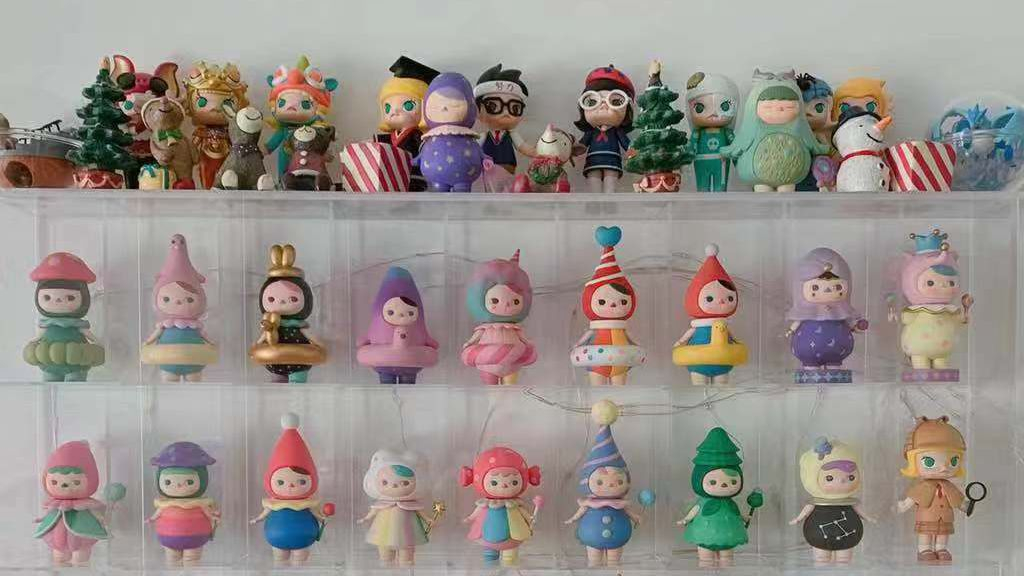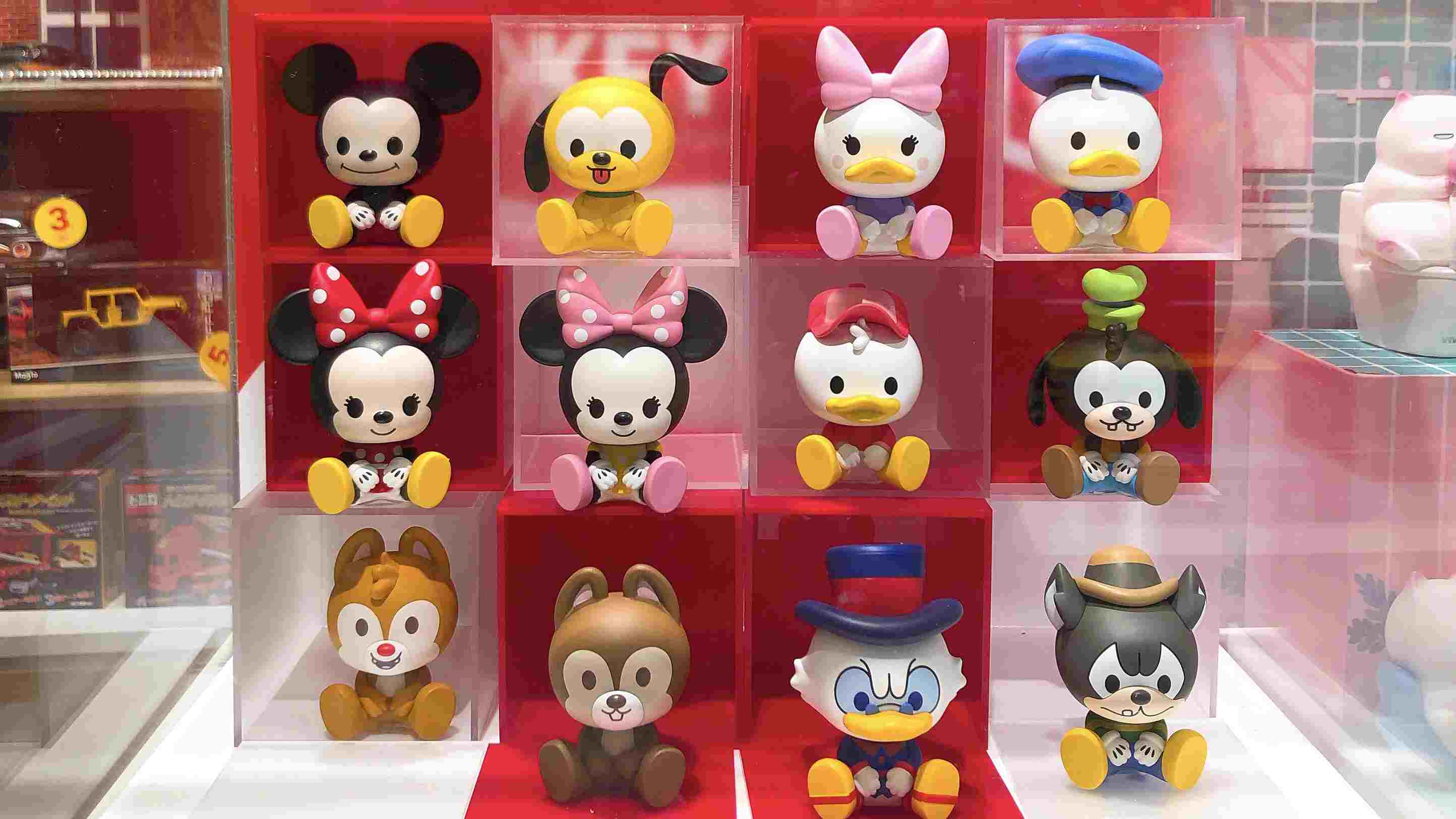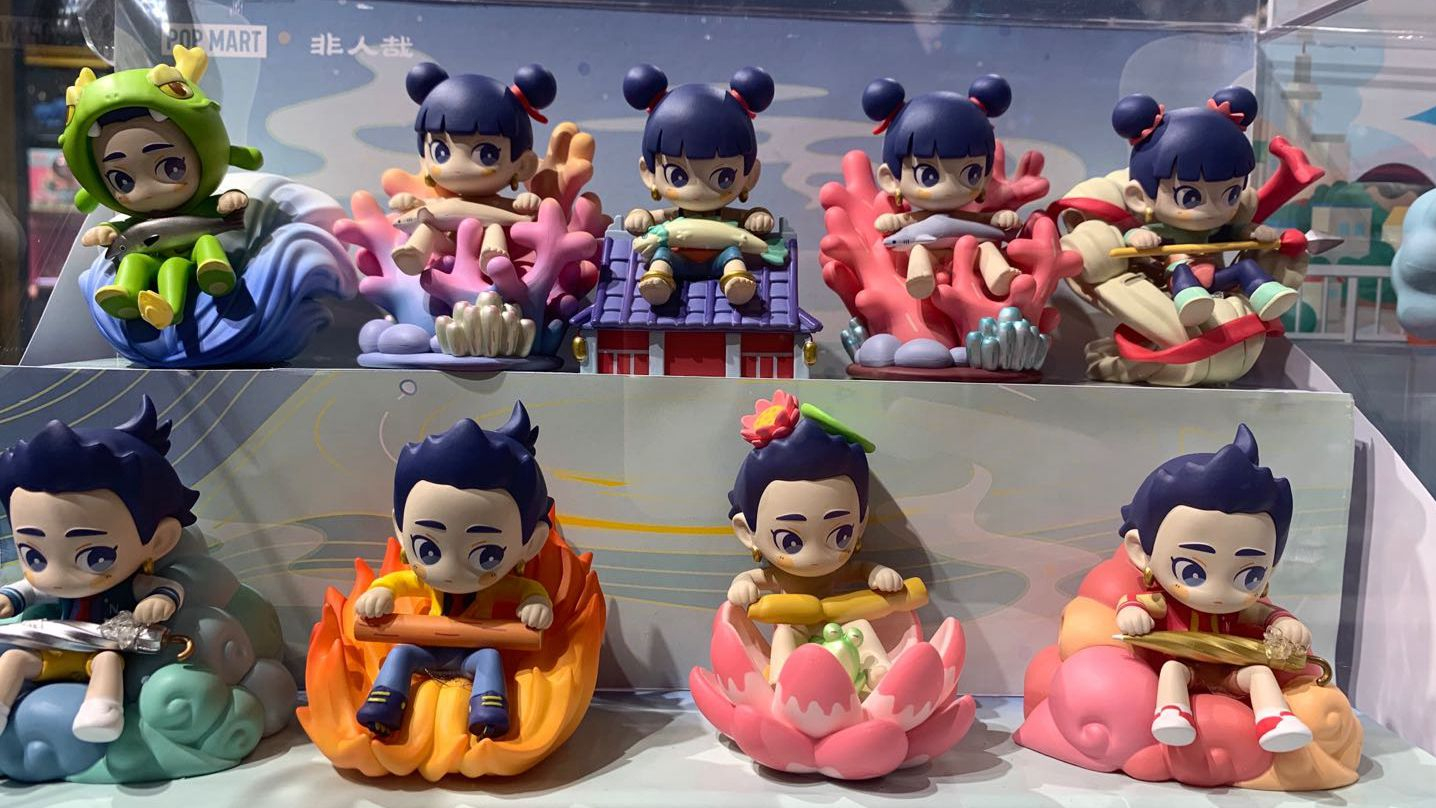In China, not only children but a new breed of young people are also fascinated with tiny toys. Their passion and devotion toward these toys are no less than the children much younger to them.
Zhao Xi, 24-year-old Beijing-based e-commerce operator, has been enchanted by these "tiny but mighty" toys since April, collecting more than 50 mini toys in less than six months. The number continues to grow.

Zhao Xi's collection of tiny toys. /CGTN Photo
Zhao Xi's collection of tiny toys. /CGTN Photo
The identity of each toy is hidden by uniform packaging in a series, often sealed within an opaque bag inside a box. So, the buyers are unaware of what's inside until they open the boxes. Hence, these are called "blind boxes." Blind-box toys are affordable too, with prices varying between 39 yuan (about 5.5 U.S. dollars) and 69 yuan (about 9.7 U.S. dollars) per piece.
To make it even more thrilling, some toymakers also place a secret design or code in these mystery-packaged toys, with no extra charges. Usually, only one box among 144 boxes contains such limited-edition collectibles.
'Delayed gratification' is one of the contributing factors
Du Du, a 25-year-old marketing operator in Qingdao, told CGTN: "The amount that I have spent – thousands of yuan – is very little. There are a lot of people who have spent more than tens of thousands of yuan on these toys." Du is one of the many toy-collecting enthusiasts in China who have taken off in the past two years.
She admitted that the thrill of opening a mystery item intrigues her to buy.
According to Qu Yuping, professor at the Shanghai Academy of Social Sciences, "The concept of these blind boxes is similar to that of online games. Actually, each game creates an addictive psychological closed loop, which includes four steps: players to play the game, giving uncertain rewards, stimulating players' sense of satisfaction and luring players to consume more for entertainment."
"Except for expecting good gifts, people who buy blind boxes also enjoy the surprise and uncertainty attached to the idea of opening a mystery box. The feeling is the same as opening birthday gifts, which is called delayed gratification in psychology," Qu said, adding that the purchasing behavior satisfies young people beyond the product itself.

Secret designs promote consumption
It is worth mentioning that the probability of chancing upon an exclusive secret-edition toy is very less, and only by obtaining it can a collector complete a set. Consumers often buy these toys in bulk with the hope of getting their hands on a rare one, spending huge sums of money in the process.
The craze has also led to the rise of the second-hand market for such toys, where the price of a secret figurine of a particular set is often way higher than an ordinary set. Therefore, secret designs are also one of the many reasons behind the stimulation of the consumption of tiny toys.
Blind-box business: Future uncertain?
The blind box business originated in Japan and is now becoming more popular in China. Young consumers are fueling a boom in China's blind-box market.

Disney-themed products are displayed at a Pop Mart store in Beijing. /CGTN Photo
Disney-themed products are displayed at a Pop Mart store in Beijing. /CGTN Photo
To continue their victory march, toymakers have been launching several themed toys – such as Marvel, Disney, Harry Potter and Sesame Street – which are liked and favored by franchise fans. Pop Mart, a major player in the blind-box business, recently introduced a series based on "Ne Zha" to grab more attention in the Chinese market after a movie based on the life of Chinese superhero "Ne Zha" broke all box office records.

Pop Mart has introduced a series of Ne Zha-themed tiny toys. /CGTN Photo
Pop Mart has introduced a series of Ne Zha-themed tiny toys. /CGTN Photo
New basic designs are also brought into the market every three months, with limited holiday editions based on themes like Christmas and Chinese New Year.
However, Qu believes that despite the fervor in the blind-box industry "young people will lose their interest if blind box businesses fail to evolve the uncertain rewards system, otherwise, this industry can maintain its success run."